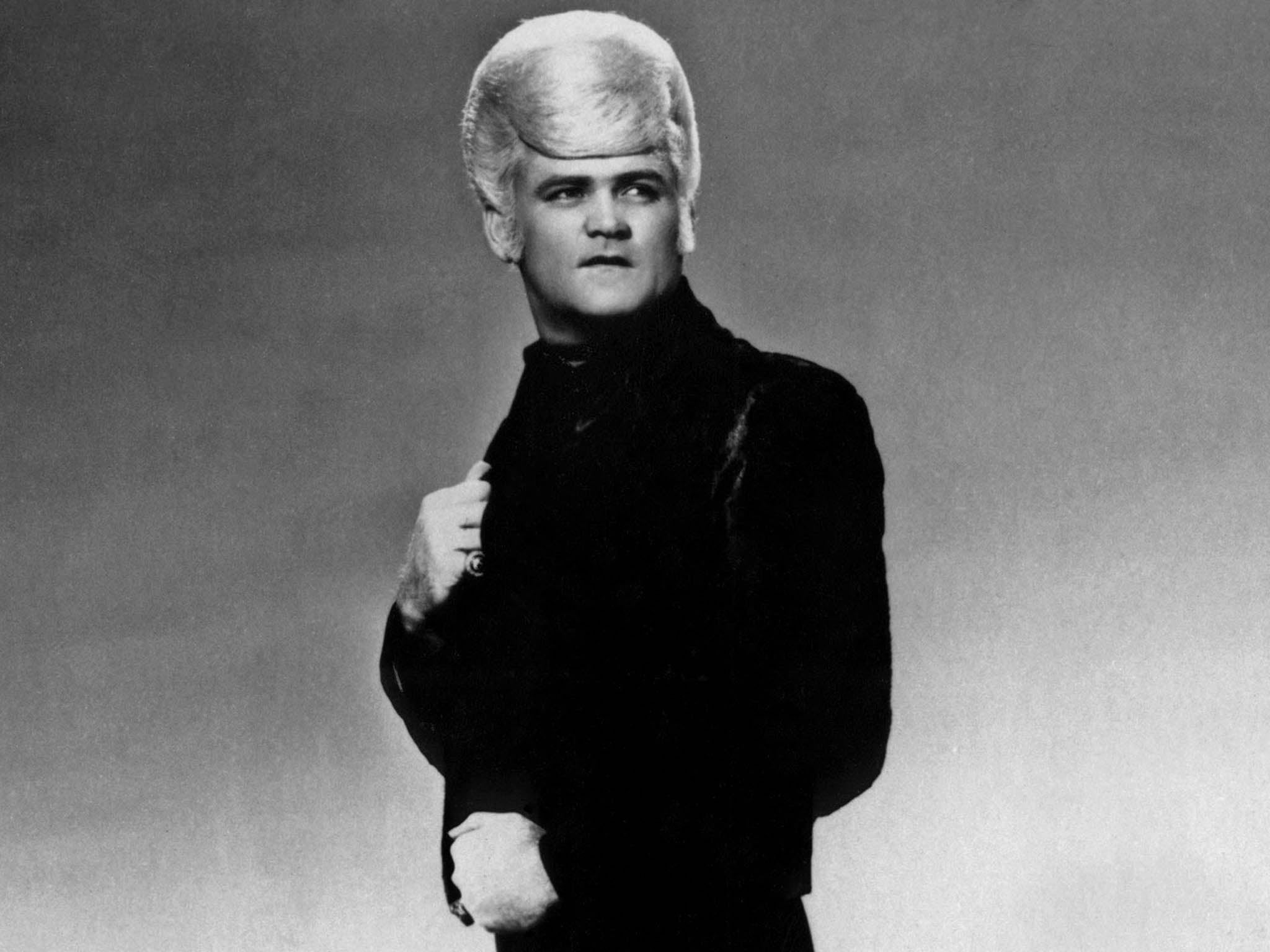Wayne Cochran: American soul singer known for his big voice and flamboyant hairstyle and dance moves
Smashing venues across the US with a style cultivated from greats such as James Brown, he ditched sloth and his rock’n’roll lifestyle to become a man of cloth

Wayne Cochran will be remembered for the hairstyle he sported during his incarnation as a soul singer – a platinum blond pompadour that towered several inches above his head – as much as for the music he created, or the work as an evangelical preacher to which he devoted the second half of his life.
Cochran, who has died aged 78 after suffering from cancer, was a showman in the mould of one of the rockers he cited as an inspiration, Little Richard. The Trump-on-steroids quiff, which resembled a swirl of candy-floss, topped off an image which included jumpsuits studded with rhinestones and custom-designed capes.
Like Little Richard, and another role model, Otis Redding, Cochran was born in Georgia, at Thomaston, site of a battle in the American Civil War. He was white, yet his vocal style often led to his being mistaken for one of the black artists he revered.
He cut his teeth in black clubs, basing much of his stage persona on that of his hero James Brown – “including dance steps, clothing and histrionic near-collapses”, as one newspaper put it.
“I never heard race in the music,” he told the Miami Herald in 2011. “It was just music that spoke to me. It moved me.”
Asked about his singing style on a TV chat show – he was occasionally invited to appear as a kind of novelty R’n’B pastor – he replied: “You gotta sound like it’s hurtin’ a little.”
When Cochran began performing in the 1950s, his repertoire comprised rockabilly and country covers. After moving to Macon, he made Redding’s acquaintance and played bass guitar on two of his early recordings. Cochran’s song “The Coo” earned a deal with King Records, where he became Brown’s label-mate and friend.
Brown’s high-energy stage antics and outlandish attire were influential on the formation of Cochran’s soul revue, featuring the CC Riders band – sometimes 14-strong and complete with horn section – and backing singers the Sheer Delights.
Ironically, Cochran’s most successful composition “Last Kiss” was not a hit for him, did not suit the “White Knight of Soul” persona he developed in the Sixties and seldom figured in his blistering live shows. A teen death song – then a fashionable genre which included “Tell Laura I Love Her”, “Leader of the Pack” and “Terry” – it was covered by J Frank Wilson & The Cavaliers in 1964, reaching No 2 in the US chart. A 1999 revival by Pearl Jam achieved identical success.
Another, less mawkish, more raucous self-penned number, “Going Back To Miami”, remained more to his taste, although it took a 1980 film cover by the Blues Brothers, Dan Akroyd and John Belushi, to secure its reputation. By the mid-Sixties, Cochran was based in Las Vegas where he knew Elvis Presley, who appeared to incorporate some of his dress sense into his live act.
His new life began at 40. Troubled by suicidal feelings and wrestling with drug and marital problems, he retired from secular testifying with the CC Riders. After declaring himself a born-again Christian, he became pastor to the Voice of Jesus ministry near Miami in 1981.
This turn to religion following a particularly tough period in his life. Aside from personal problems – such as his wife making off with the children – disco was replacing his Sixties sound, resulting in dwindling crowds. Then there was the relentless touring, drink and drugs.
“I remember dreading the thought of living another 30 or 40 years,” Cochran told the Miami New Times in 1997. “I had this absolute fear of tomorrow. I had had everything. I had gone from nothing to everything and was heading back to nothing. I got to the point of attempted suicide, because when your past is more exciting to you than the future, then you're basically dead.
“And there was the humiliation of knowing your mama was going to find out the truth about you, that you weren't that good little boy. You just want to get out. You start wondering if there's an answer out there for you.”
The pompadour had given way to a more modest look. Unlike some who found God, though, he did not disown has past. He and the group played two reunion shows in 2001, and music was a strong component of his proselytising. “I believe in its power,” he said. “If you don’t want to get ecstatic, don’t come to this church.”
Cochran, who lived in Florida for more than 50 years, was divorced from his first wife, Inez Newton, with whom he had two children who survive him. He was also married Monica Powell, who died in February.
Talvin Wayne Cochran, singer, songwriter and pastor, born 10 May 1939, died 21 November 1939
Subscribe to Independent Premium to bookmark this article
Want to bookmark your favourite articles and stories to read or reference later? Start your Independent Premium subscription today.

Join our commenting forum
Join thought-provoking conversations, follow other Independent readers and see their replies